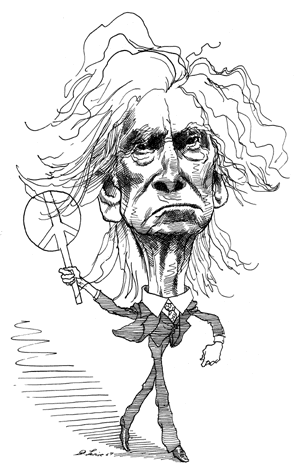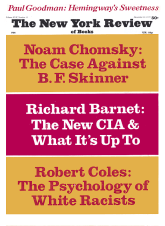To the Editors:
The scourge of spheres of influence has been haunting the world ever since the onslaught of modern imperialism, a hundred years ago. Throughout this period, punctuated by waves of mass violent death, accompanied by pauperization on a global scale, the imperialist powers have periodically concluded through secret diplomacy, conducted behind closed doors, agreements for the division of spheres of influence.
They have made vital decisions about the fate of third parties, particularly concerning the colonial and subjugated peoples, without their knowledge and against their basic interests, treating them as the objects and not the subjects of international relations.
Throughout the era of imperialism, the instrument of spheres of influence has been applied on an ever-widening scale. The first such agreement on the division into the spheres of influence was concluded in Berlin in 1884, when only the African colonies were the object of imperialist rapacity. In World War I the prey of the winning great powers was carefully dissected in the London Treaty of 1915 and similar other secret treaties. And in World War II through the Teheran, Yalta, and Potsdam conferences a greater part of Europe and Asia became the victims of such predatory methods. This time even France, which had herself been a leading partner in earlier exploitative treaties, shared such a fate.
The respective superpowers regard “their spheres of influence” as their own hunting grounds. The great surge of self-determination since the last world war has brought the fall of several colonial empires, but due to pressure from the superpowers neocolonialism on all continents has made the independence of many nations and former colonies merely nominal.
In the last years of his life Bertrand Russell, disgusted with the hypocrisy of the institutionalized organs of world public opinion and cognizant of the requests of concerned people all around the globe that something must be done, gave the initiative for the formation of the War Crimes Tribunal for the Investigation of the War Crimes in Vietnam. And in the last months of his life, he sensed that a new balance of power was being built in the world, and that the negotiations for a new division of the world into spheres of influence had begun.
He was fully aware of the need of negotiations among great powers to solve the major issues separating them, particularly in the age of nuclear weapons. But he opposed the old practices of disposing of the vital interests of other parties and of violating the principle of the right to equality among the states, big and small, and of the rights of peoples movements.
Next year will mark the hundredth anniversary of Bertrand Russell’s birth. In collaboration with the Bertrand Russell Peace Foundation we are inviting all concerned persons who have an interest in the ethical, historical, and legal aspects of the problem of spheres of influence to attend the Russell Memorial Symposium on Spheres of Influence in the Age of Imperialism.
The Symposium will take place in September, 1972. The place will be announced later.
We propose that the Symposium discuss first analytic perspectives to provide an overview and then historical test-cases from 1878 to the present.
Five main papers will comprise the section on Analytic Perspective:
- Conceptual bases for spheres of influence and secret diplomacy in the historiography of imperialism.
- The institution of agreements on spheres of influence in International and National Law.
- International morality versus secret diplomacy and agreements on spheres of influence.
-
The driving force of imperialism.
-
The emerging world order.
All those who wish to participate should contact Professor Vladimir Dedijer at the Department of History, University of Michigan, Ann Arbor, Michigan 48104 up to January 1, 1972, and thereafter at Stara Fuzina, Bohinj, SR Slovenia, Yugoslavia.
We believe that this Symposium will help focus world public opinion on the struggle against imperialism on all continents.
Noam Chomsky
Vladimir Dedijer
Jean-Paul Sartre
This Issue
December 30, 1971




